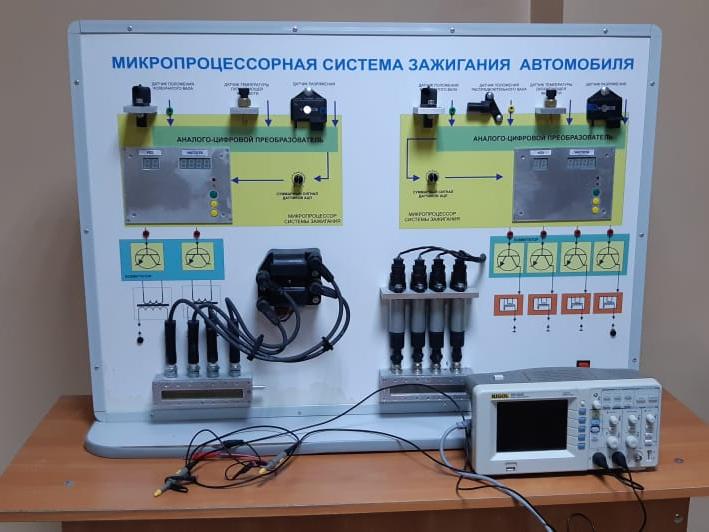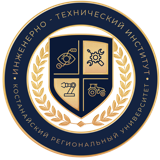Educational and scientific laboratories
The department trains highly qualified specialists in the field of electric power and thermal power engineering. The department improves: curricula and programs, material and technical base, educational process with educational and teaching materials in two languages - Kazakh and Russian.
The auditoriums of the Department of Electricity are decorated with visual and information stands.
The department has the following laboratories:
- Laboratory of electrical engineering
- Laboratory of electrical equipment of power stations and substations
- Electrotechnology laboratory
- Laboratory of electronics and microprocessor technology
- Laboratory of electrical machines
- Electric drive laboratory
- Laboratory of relay protection (training ground for specialists in electric power industry)
- Laboratory for installation of electrical equipment (testing ground for the training of electric power specialists)
- RES laboratory (master's, doctoral studies)
- Laboratory of innovative engineering (GPIIR-2)
The laboratory of electrical equipment of power stations and substations is equipped with power devices and equipment necessary for the study of the main and auxiliary equipment of power stations and substations.

The laboratory of electrical engineering is equipped with instruments and equipment for the study of sinusoidal current circuits with serial connection of receivers; study of sinusoidal current circuits with parallel connection of receivers; study of circuits of semiconductor rectifiers; measurement of current strength, voltage and power in alternating current circuits; study of a three-phase sinusoidal current circuit, as well as the educational and laboratory complex "Theoretical Foundations of Electrical Engineering".

The laboratory of electrotechnology is equipped with instruments and equipment for the study and research of the electrolysis plant; the study of the electrical properties of conductive materials; study of the properties of photoresistors, as well as demonstration stands for electric welding.
The laboratory "Electronics and microprocessor technology" is equipped with instruments and equipment for the construction of circuits and the study of an on-off automatic control system; electromagnetic relays and step finders; study of elements of telesignaling and telecontrol systems; magnetic amplifiers and more.
The laboratory of electrical machines is equipped with instruments and equipment:
Study of a single-phase transformer; preparation and start-up of the DC motor; study of a three-phase asynchronous electric motor; study of a universal collector electric motor; study of electromechanical and mechanical characteristics of DC electric motors and asynchronous electric motors.
The laboratory "Elektroprivoda" is a complex of educational equipment for studying the operation of both an unregulated AC and DC electric drive, and an adjustable interconnected drive.
The Relay Protection Laboratory is equipped with instruments and equipment necessary for the study and testing of electromagnetic relays; tests of automatic switching on of the reserve, automatic reclosing; relay protection panels installed.
The electrical installation laboratory is equipped with the following devices and equipment: Laboratory and demonstration stands: Checking a single-phase electric energy meter and switching and protective equipment; installation of electrical wires in a residential building; transformer substation.
The laboratory of innovative engineering, acquired as part of the GPIIR-2 program in 2017, provides an opportunity for undergraduates (if necessary, and undergraduate students) to perform a wide range of practical work and master's projects (dissertations) on studying the design and working process of elements and components of a passenger car: electronic systems ignition, air conditioning and heating systems, electrical equipment of the car.
As part of the implementation of the TEMPUS Green Engine project, a laboratory for renewable energy sources (RES laboratory) has been opened and operates, including a wind power plant, a solar collector, photovoltaic panels with monitoring and control equipment. It is used when performing master's theses and scientific papers of bachelor students.


